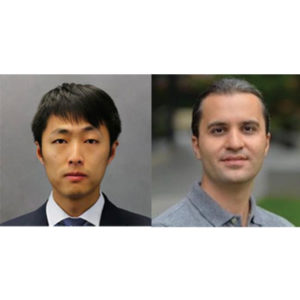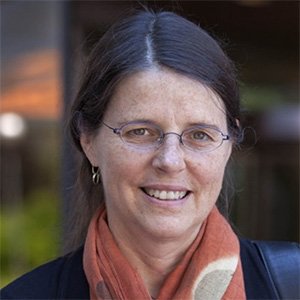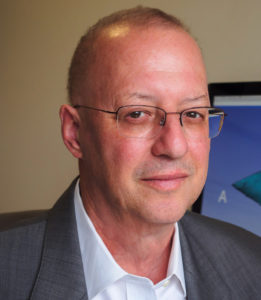
“Messaging in the Age of Microtargeting”
John Stafford
Assistant Vice President
Digital Strategy
Stanford University
Bjorn Carey
Senior Director
Digital Strategy
Stanford University
Join via Zoom: https://stanford.zoom.us/j/400566542
Abstract:
Communications has become increasingly data-driven, targeted, and personalized. This has changed how Stanford analyzes communications opportunities from a research perspective and how it engages with relevant audiences. In this presentation, John and Bjorn will share the data and communications strategy underlying three communications initiatives and the resulting execution. They will also provide practical advice for individual thought leadership and communications in this dynamic environment.
About:
John Stafford, MA ’06, is currently Assistant Vice President for Digital Strategy at Stanford, the most senior digital communications role in the university. John is responsible for all aspects of creating a world-class digital communications function: setting the group’s strategy, building analytics and insight programs, counseling on crisis communications, leading multi-channel messaging initiatives, and advising colleagues across the University. He received a Master’s Degree in Communication from Stanford, a B.A. in History from the University of San Francisco, and was a founding advisor to Stanford Medicine X.
Refreshments will be provided.

“Algorithm Development Lifecycle in Medical Imaging:
Current State and Considerations for the Future”
Luciano M. Prevedello, MD, MPH
Vice-Chair for Medical Informatics and Augmented Intelligence in Imaging
Division Chief, Medical Imaging Informatics
Director, 3D and Advanced Visualization Lab
Associate Professor, Division of Neuroradiology,
Department of Radiology
Ohio State University Wexner Medical Center
Join via Zoom: https://stanford.zoom.us/j/267814863
Abstract:
This presentation will describe some of the most important considerations involved in creating algorithms in medical imaging from inception to deployment as well as continued model improvement and/or monitoring. Examples of experience to date from the OSU laboratory for augmented intelligence in imaging will be provided. New paradigms in model creation and the role of image challenge competitions will also be covered. Current issues with model validation and generalizability will also be introduced as well as considerations for future work in this area.
Refreshments will be provided.

“A Deep Learning Framework for Efficient Registration of MRI and Histopathology Images of the Prostate”
Wei Shao, PhD
Postdoctoral Research Fellow
Department of Radiology
Stanford University
“Applications of Generative Adversarial Networks (GANs) in Medical Imaging”
Saeed Seyyedi, PhD
Paustenbach Research Fellow
Department of Radiology
Stanford University
Join via Zoom: https://stanford.zoom.us/j/593016899
Refreshments will be provided
ABSTRACT (Shao)
Magnetic resonance imaging (MRI) is an increasingly important tool for the diagnosis and treatment of prostate cancer. However, MRI interpretation suffers from high interobserver variability and often misses clinically significant cancers. Registration of histopathology images from patients who have undergone surgical resection of the prostate onto pre-operative MRI images allows direct mapping of cancer location onto MR images. This is essential for the discovery and validation of novel prostate cancer signatures on MRI. Traditional registration approaches can be computationally expensive and require a careful choice of registration hyperparameters. We present a deep learning-based pipeline to accelerate and simplify MRI-histopathology image registration in prostate cancer. Our pipeline consists of preprocessing, transform estimation by deep neural networks, and postprocessing. We refined the registration neural networks, originally trained with 19,642 natural images, by adding 17,821 medical images of the prostate to the training set. The pipeline was evaluated using 99 prostate cancer patients. The addition of the images to the training set significantly (p < 0.001) improved the Dice coefficient and reduced the Hausdorff distance. Our pipeline also achieved comparable accuracy to an existing state-of-the-art algorithm while reducing the computation time from 4.4 minutes to less than 2 seconds.
ABSTRACT (Seyyedi)
Generative adversarial networks (GANs) are advanced types of neural networks where two networks are trained simultaneously to perform two tasks of generation and discrimination. GANs have gained a lot of attention to tackle well known and challenging problems in computer vision applications including medical image analysis tasks such as medical image de-noising, detection and classification, segmentation and reconstruction.In this talk, we will introduce some of the recent advancements of GANs in medical imaging applications and will discuss the recent developments of GAN models to resolve real world imaging challenges.

CEDSS: “Strategies to Identify Aggressive Breast Cancer Biology in Black and Latina Women”
Victoria Seewaldt, MD
Ruth Ziegler Professor and Chair, Department of Population Sciences
Associate Director for Population Sciences Research, Comprehensive Cancer Center
City of Hope
Beckman Center, Munzer Auditorium (B060)
11:00am – 12:00pm Seminar & Discussion
12:00pm – 12:15pm Reception & Light Refreshments
RSVP here: https://www.onlineregistrationcenter.com/VictoriaSeewaldt
ABSTRACT
Over 90% of breast cancer is cured; yet there remain highly aggressive breast cancers that develop rapidly and are extremely difficult to treat, much less prevent. Examples are triple-negative breast cancer in Black/African American women and luminal B breast cancers in Black/African Americans and Latinas. Breast cancers that rapidly develop between breast imaging are called “interval cancers”. Here we aim to investigate biologically aggressive precancerous breast lesions and their matched invasive breast cancers in women of diverse race and ethnicity. Our team has the unique ability to perform single cell in situ transcriptional profiling in combination with dynamic and spatial genomics/proteomics; this allows us to identify multi-dimensional spatial and temporal relationships that drive the transition from biologically aggressive pre-cancer to interval breast cancer.
ABOUT
Victoria Seewaldt, M.D., is an accomplished clinician and researcher who’s devoted to improving the lives of her patients and the community at large. She has led community outreach education efforts on cancer prevention through personal wellbeing and directed research aimed at finding biomarkers that can be used for early cancer detection, particularly triple-negative breast cancers that are especially resistant to treatment.
At City of Hope, Dr. Seewaldt will direct efforts to provide breast cancer education, free breast cancer screening and treatment, mentorship of young minority scholars, and a forum for community partnered trials. Clinically, Dr. Seewaldt aims to empower women at high breast cancer risk to be full partners in developing wellness strategies to promote personal health.
Dr. Seewaldt received her medical degree from the University of California, Davis, and completed her residency and clinical fellowship at the University of Washington in Seattle. She then pursued a medical oncology fellowship with the Fred Hutchinson Cancer Research Center and then became an assistant professor at Ohio State University. Afterwards, she transferred to Duke University, where she held various clinical, academic and leadership roles in its School of Medicine and Comprehensive Cancer Center — most recently as a professor, co-leader of the breast and ovarian cancer program and head of the cancer breast prevention program — before joining City of Hope.

Ron Kikinis, MD
Director of the Surgical Planning Laboratory
Professor of Radiology
Department of Radiology
Brigham and Women’s Hospital
Harvard Medical School
Title: Evolving Health Care from an Artisanal Organization into an Industrial Enterprise
Refreshments will be provided
Join via Zoom: https://stanford.zoom.us/j/996417088
Abstract: During the last decade, results from basic research in the fields of genetics and immunology have begun to impact treatment in a variety of diseases. Checkpoint therapy, for instance has fundamentally changed the treatment and survival of some patients with melanoma. The medical workplace has transformed from an artisanal organization into an industrial enterprise environment. Workflows in the clinic are increasingly standardized. Their timing and execution are monitored through omnipresent software systems. This has resulted in an acceleration of the pace of care delivery. Imaging and image post-processing have rapidly evolved as well, enabled by ever-increasing computational power, novel sensor systems and novel mathematical approaches. Organizing the data and making it findable and accessible is an ongoing challenge and is investigated through a variety of research efforts. These topics will be reviewed and discussed during the lecture.
About:
Dr. Kikinis is the founding Director of the Surgical Planning Laboratory, Department of Radiology, Brigham and Women’s Hospital, Harvard Medical School, Boston, MA, and a Professor of Radiology at Harvard Medical School. This laboratory was founded in 1990. Before joining Brigham & Women’s Hospital in 1988, he trained as a resident in radiology at the University Hospital in Zurich, and as a researcher in computer vision at the ETH in Zurich, Switzerland. He received his M.D. degree from the University of Zurich, Switzerland, in 1982. In 2004 he was appointed Professor of Radiology at Harvard Medical School. In 2009 he was the inaugural recipient of the MICCAI Society “Enduring Impact Award”. On February 24, 2010 he was appointed the Robert Greenes Distinguished Director of Biomedical Informatics in the Department of Radiology at Brigham and Women’s Hospital. On January 1, 2014, he was appointed “Institutsleiter” of Fraunhofer MEVIS and Professor of Medical Image Computing at the University of Bremen. Since then he is commuting every two months between Bremen and Boston.
During the mid-80’s, Dr. Kikinis developed a scientific interest in image processing algorithms and their use for extracting relevant information from medical imaging data. Due to the explosive increase of both the quantity and complexity of imaging data this area of research is of ever-increasing importance. Dr. Kikinis has led and has participated in research in different areas of science. His activities include technological research (segmentation, registration, visualization, high performance computing), software system development, and biomedical research in a variety of biomedical specialties. The majority of his research is interdisciplinary in nature and is conducted by multidisciplinary teams. The results of his research have been reported in a variety of peer-reviewed journal articles. He is an author and co-author of over 350 peer-reviewed articles.
Follow us on Twitter: @StanfordIBIIS

Tessa Cook, MD, PhD
Assistant Professor of Radiology
Perelman School of Medicine
University of Pennsylvania
Title: Deploying AI in the Clinical Radiology Workflow: Challenges, Opportunities, and Examples
Abstract: Although many radiology AI efforts are focused on pixel-based tasks, there is great potential for AI to impact radiology care delivery and workflow when applied to reports, EMR data, and workflow data. Radiology-pathology correlation, identification of follow-up recommendations, and report segmentation can be used to increase meaningful feedback to radiologists as well as to automate tasks that are currently manual and time-consuming. When deploying AI within the clinical workflow, there are many challenges that may slow down or otherwise affect the integration. Careful consideration of the way in which radiologists may expect to interact with AI results should be undertaken to meaningfully deploy radiology AI in a safe and effective way.

Please note this seminar is now cancelled and will be rescheduled for a future date. Please contact Ashley Williams (ashleylw@stanford.edu) with any questions or concerns. Thank you for your understanding!
CEDSS: “The First Cell and the Human Cost of going after Cancer’s last”
Chan Soon-Shiong Professor of Medicine
Director, Myelodysplastic Syndrome Center
Columbia University Medical Center

Radiomics and Radio-Genomics: Opportunities for Precision Medicine
Zoom: https://stanford.zoom.us/j/99904033216?pwd=U2tTdUp0YWtneTNUb1E4V2x0OTFMQT09
Pallavi Tiwari, PhD
Assistant Professor of Biomedical Engineering
Associate Member, Case Comprehensive Cancer Center
Director of Brain Image Computing Laboratory
School of Medicine | Case Western Reserve University
Abstract:
In this talk, Dr. Tiwari will focus on her lab’s recent efforts in developing radiomic (extracting computerized sub-visual features from radiologic imaging), radiogenomic (identifying radiologic features associated with molecular phenotypes), and radiopathomic (radiologic features associated with pathologic phenotypes) techniques to capture insights into the underlying tumor biology as observed on non-invasive routine imaging. She will focus on clinical applications of this work for predicting disease outcome, recurrence, progression and response to therapy specifically in the context of brain tumors. She will also discuss current efforts in developing new radiomic features for post-treatment evaluation and predicting response to chemo-radiation treatment. Dr. Tiwari will conclude with a discussion on her lab’s findings in AI + experts, in the context of a clinically challenging problem of post-treatment response assessment on routine MRI scans.

CEDSS: “Multicancer detection of early-stage cancers with simultaneous tissue localization using a plasma cfDNA-based targeted methylation assay”
Eric Fung, M.D., Ph.D.
Senior Medical Director
GRAIL, Inc.
Please see zoom details below:
Meeting URL: https://stanford.zoom.us/j/230531527
Dial: +1 650 724 9799 (US, Canada, Caribbean Toll) or +1 833 302 1536 (US, Canada, Caribbean Toll Free)
Meeting ID: 230 531 527
ABOUT
Dr. Eric Fung is Vice President, Clinical Development at GRAIL, where he leads several clinical development programs in support of the development of a blood-based multi-cancer detection test. Dr. Fung has previously held clinical development and R&D leadership roles at Affymetrix, Vermillion, Ciphergen, and Roche Molecular Diagnostics. Dr. Fung has led clinical trials leading to FDA clearance of multiple IVD products. Dr. Fung received his MD, PhD from the Johns Hopkins University School of Medicine.
Hosted by: Sanjiv Sam Gambhir, M.D., Ph.D.
Sponsored by the Canary Center & the Department of Radiology
Stanford University – School of Medicine

Judy Gichoya, MD
Assistant Professor
Emory University School of Medicine
Measuring Learning Gains in Man-Machine Assemblage When Augmenting Radiology Work with Artificial Intelligence
Abstract
The work setting of the future presents an opportunity for human-technology partnerships, where a harmonious connection between human-technology produces unprecedented productivity gains. A conundrum at this human-technology frontier remains – will humans be augmented by technology or will technology be augmented by humans? We present our work on overcoming the conundrum of human and machine as separate entities and instead, treats them as an assemblage. As groundwork for the harmonious human-technology connection, this assemblage needs to learn to fit synergistically. This learning is called assemblage learning and it will be important for Artificial Intelligence (AI) applications in health care, where diagnostic and treatment decisions augmented by AI will have a direct and significant impact on patient care and outcomes. We describe how learning can be shared between assemblages, such that collective swarms of connected assemblages can be created. Our work is to demonstrate a symbiotic learning assemblage, such that envisioned productivity gains from AI can be achieved without loss of human jobs.
Specifically, we are evaluating the following research questions: Q1: How to develop assemblages, such that human-technology partnerships produce a “good fit” for visually based cognition-oriented tasks in radiology? Q2: What level of training should pre-exist in the individual human (radiologist) and independent machine learning model for human-technology partnerships to thrive? Q3: Which aspects and to what extent does an assemblage learning approach lead to reduced errors, improved accuracy, faster turn-around times, reduced fatigue, improved self-efficacy, and resilience?
Zoom: https://stanford.zoom.us/j/93580829522?pwd=ZVAxTCtEdkEzMWxjSEQwdlp0eThlUT09